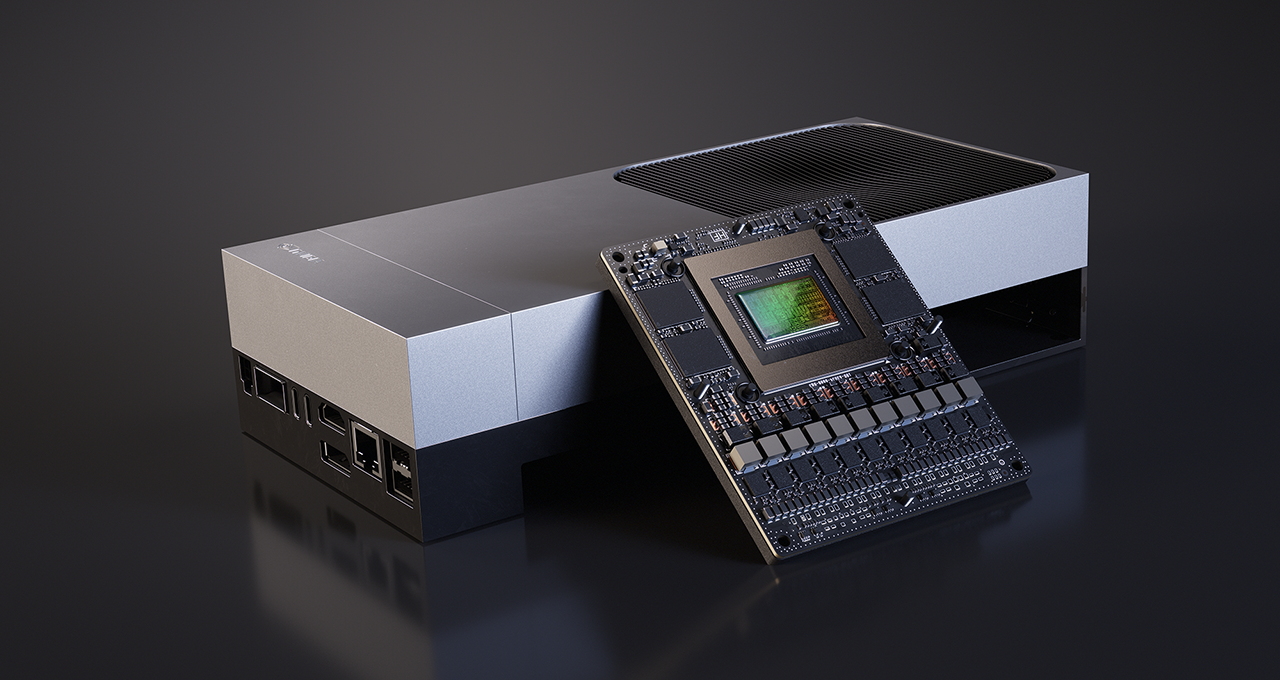#edge-ai
#edge-ai
[ follow ]
#industrial-iot #robotics #wi-fi-8 #ai-hardware #edge-computing #ai-hat-2 #raspberry-pi #ai-pcs #dragonwing
fromYanko Design - Modern Industrial Design News
1 week agoAI Mini PCs Don't Need to Hide: This One's a Sci-Fi Pyramid - Yanko Design
Mini PCs used to be defined by how invisible they could be, small black rectangles tucked behind monitors or under shelves. That made sense when they were just low-power desktops, but feels out of step now that these machines are running models, listening, watching, and routing data. If AI is going to sit on your desk, it might as well look like it belongs there instead of hiding like a piece of infrastructure.
Gadgets
fromEngadget
3 weeks agoHonda vehicles used to proactively report road safety issues in nation-first pilot
Honda and DriveOhio have teamed up on a new road safety initiative in which Honda vehicles are being used to collect real-time data that can advise about potential issues and road deficiencies before they become a problem. Honda's Proactive Roadway Maintenance System, which has been in prototyping since 2021, uses "advanced vision and LiDAR sensors" to identify issues such as worn or obstructed road signs, damaged guardrails, rough roads and emerging potholes.
Cars
fromEngadget
1 month agoBrunswick's latest boats at CES 2026 feature edge AI, self-docking capabilities and solar power
If you've never docked a boat before, consider yourself lucky. There are plenty of popular TikTok channels devoted to shaming those who bring their craft back home clumsily or berth them with something less than finesse. Tricky crosswinds, unpredictable surf and even the jeers of passersby can make it a stressful experience at the best of times. Brunswick, which owns more than 50 water-borne brands like Sea Ray, Bayliner and Mercury Marine, has a solution.
Artificial intelligence
fromTheregister
2 months agoMistral AI rolls out full suite of Apache-licensed models
Mistral AI has released a suite of open source models under the Mistral 3 banner, aiming to scale from a mobile device or drone up to multi-GPU datacenter beasts. While the French company does not share its training data, the decision to open source the models under the Apache 2.0 license is notable. "Open sourcing our models is about empowering the developer community and really putting AI in people's hands, allowing them to own their AI future," Mistral said.
Artificial intelligence
fromTechzine Global
2 months agoAxis Communications acquires FF Group for license plate verification
Axis Communications is acquiring FF Group, a provider of license plate recognition technology. The acquisition is intended further to strengthen Axis's position in the traffic market. FF Group has been a partner of the Swedish company since 2017. Axis Communications CEO Ray Mauritsson explains the acquisition. "The market for traffic applications is growing. Acquiring FF Group will strengthen our competitiveness, knowledge, and capabilities in license plate verification," he says.
Artificial intelligence
fromBerlin Startup Jobs
3 months agoJob Vacancy: IT Developer // GreenAutarky GmbH | IT / Software Development Jobs | Berlin Startup Jobs
We are a Berlin company with international employees working on decentral collaborative AI services in real estate. We change how people live and work, by making buildings think and act adaptive to occupant needs. It is not another App. We save highest possible energy and run AI in compliance with GDPR. We look for developers who know AI on edge as well as power of Edge&Cloud.
Software development
Tech industry
fromInfoQ
4 months agoGoogle Research Open-Sources the Coral NPU Platform to Help Build AI into Wearables and Edge Devices
Coral NPU enables efficient, on-device AI for battery-powered wearables and edge devices by optimizing hardware for ML, reducing fragmentation, and enforcing privacy.
Artificial intelligence
fromApp Developer Magazine
1 year agoDeveloper centric strategies for deploying AI models in production
Manage non-deterministic AI behavior, test and monitor models, adapt prompts during model changes, and balance accuracy with device constraints for reliable production deployments.
fromInfoWorld
4 months agoWith Arduino deal, Qualcomm pushes deeper into open-source and edge AI development
Seamless integration of App Lab with the Edge Impulse platform also helps streamline and accelerate the process of building, fine-tuning, and optimizing AI models using real-world data for a wide range of capabilities such as object/human detection, anomaly detection, image classification, ambient sound recognition, and keyword spotting.
Tech industry
fromComputerWeekly.com
5 months agoTech consortium unveils private 5G, AI-powered edge innovation hub | Computer Weekly
SIPBB is a hub for pioneering researchers, engineers and investors to meet with industrial partners in startup ecosystems to exchange ideas, test and validate new technologies,
Tech industry
fromInfoWorld
5 months agoGoogle intros EmbeddingGemma for on-device AI
With the introduction of its EmbeddingGemma, Google is providing a multilingual text embedding model designed to run directly on mobile phones, laptops, and other edge devices for mobile-first generative AI. Unveiled September 4, EmbeddingGemma features a 308 million parameter design that enables developers to build applications using techniques such as RAG ( retrieval-augmented generation) and semantic search that will run directly on the targeted hardware, Google explained.
Artificial intelligence
fromTheregister
5 months agoUS Army signs up AI tool to detect and track targets
The platform ingests data from multiple sensors, such as air, land, sea, and space-based imagery and signals, to detect battlefield threats like drones, enemy positions, or other targets. FPS does all of that in a no-code, hardware-agnostic environment that lets the average soldier in the field "build, retrain, and deploy custom machine learning models at the edge without coding," according to the company. Most critically, FPS is designed to operate without a connection to the internet or cloud services.
Artificial intelligence
fromComputerWeekly.com
5 months agoAI in driver's seat for real-time, in-vehicle experience | Computer Weekly
Artificial intelligence (AI) and software-defined vehicle (SDV) supplier Sonatus has launched a platform to help original equipment manufacturers (OEMs) use AI to transform driving and ownership experiences with greater efficiency and lower costs. The firm believes its Sonatus AI Director will be "game-changing", enabling OEMs to deploy AI at the vehicle edge to shrink roll-out cycles from months to days, while lowering costs and enabling smarter, safer driving.
Cars
fromTechCrunch
5 months agoMalaysia's SkyeChip unveils the country's first edge AI processor | TechCrunch
Malaysia has developed its first domestic edge AI processor. Malaysian chip design company SkyeChip announced its MARS1000 processor at an industry event on Monday, Bloomberg reported. While an edge processor isn't as powerful as an advanced Nvidia chip, it still represents a technological milestone for Malaysia, which is looking to play a bigger role in the global AI race. Malaysia already has a foothold in the chip manufacturing sector and has recently increased its efforts and investment around AI.
Artificial intelligence
[ Load more ]











